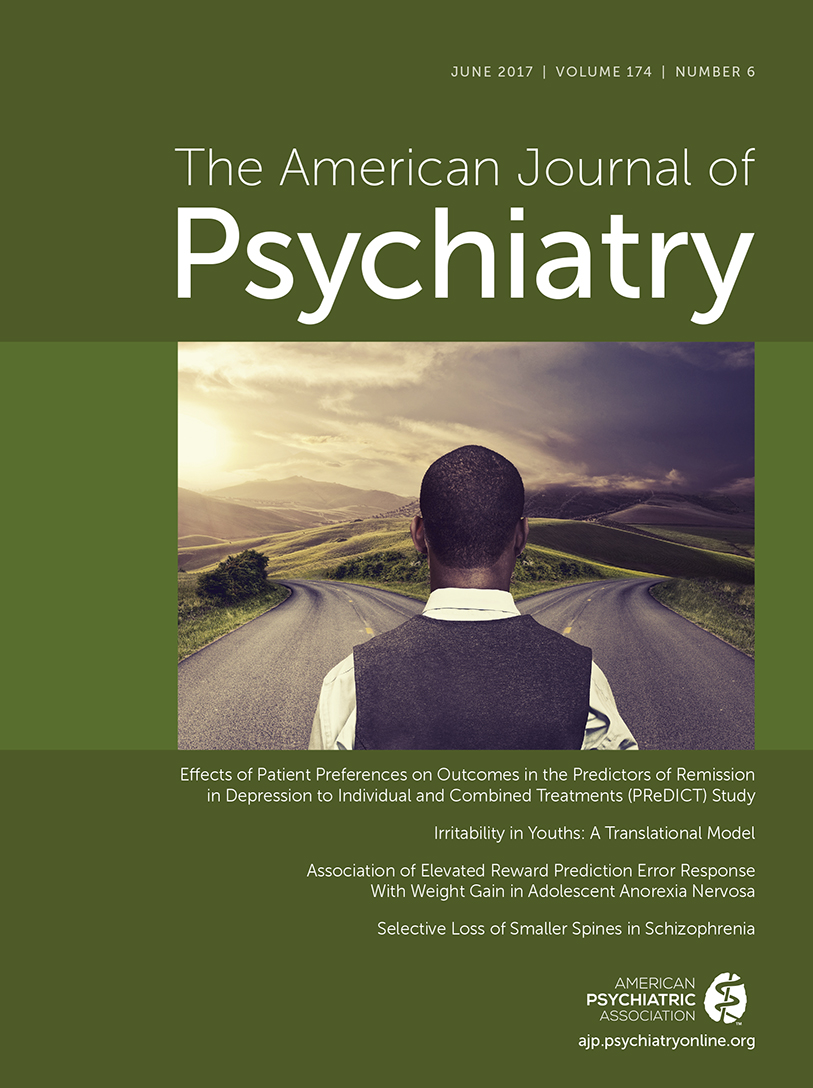Effects of Patient Preferences on Outcomes in the Predictors of Remission in Depression to Individual and Combined Treatments (PReDICT) Study
Abstract
Objective:
The Predictors of Remission in Depression to Individual and Combined Treatments [PReDICT] study aimed to identify clinical and biological factors predictive of treatment outcomes in major depressive disorder among treatment-naive adults. The authors evaluated the efficacy of cognitive-behavioral therapy (CBT) and two antidepressant medications (escitalopram and duloxetine) in patients with major depression and examined the moderating effect of patients’ treatment preferences on outcomes.
Method:
Adults aged 18–65 with treatment-naive major depression were randomly assigned with equal likelihood to 12 weeks of treatment with escitalopram (10–20 mg/day), duloxetine (30–60 mg/day), or CBT (16 50-minute sessions). Prior to randomization, patients indicated whether they preferred medication or CBT or had no preference. The primary outcome was change in the 17-item Hamilton Depression Rating Scale (HAM-D), administered by raters blinded to treatment.
Results:
A total of 344 patients were randomly assigned, with a mean baseline HAM-D score of 19.8 (SD=3.8). The mean estimated overall decreases in HAM-D score did not significantly differ between treatments (CBT: 10.2, escitalopram: 11.1, duloxetine: 11.2). Last observation carried forward remission rates did not significantly differ between treatments (CBT: 41.9%, escitalopram: 46.7%, duloxetine: 54.7%). Patients matched to their preferred treatment were more likely to complete the trial but not more likely to achieve remission.
Conclusions:
Treatment guidelines that recommend either an evidence-based psychotherapy or antidepressant medication for nonpsychotic major depression can be extended to treatment-naive patients. Treatment preferences among patients without prior treatment exposure do not significantly moderate symptomatic outcomes.



